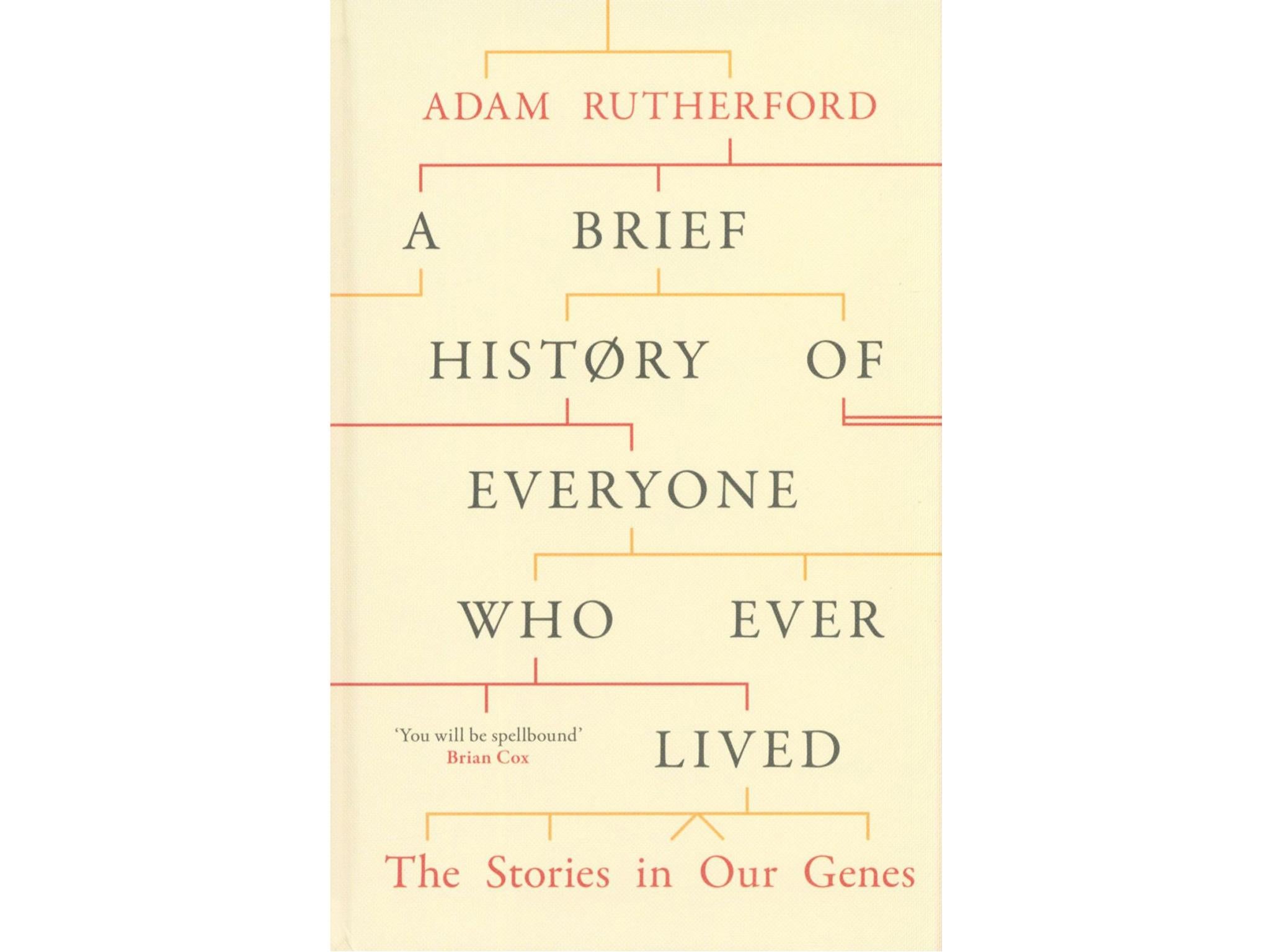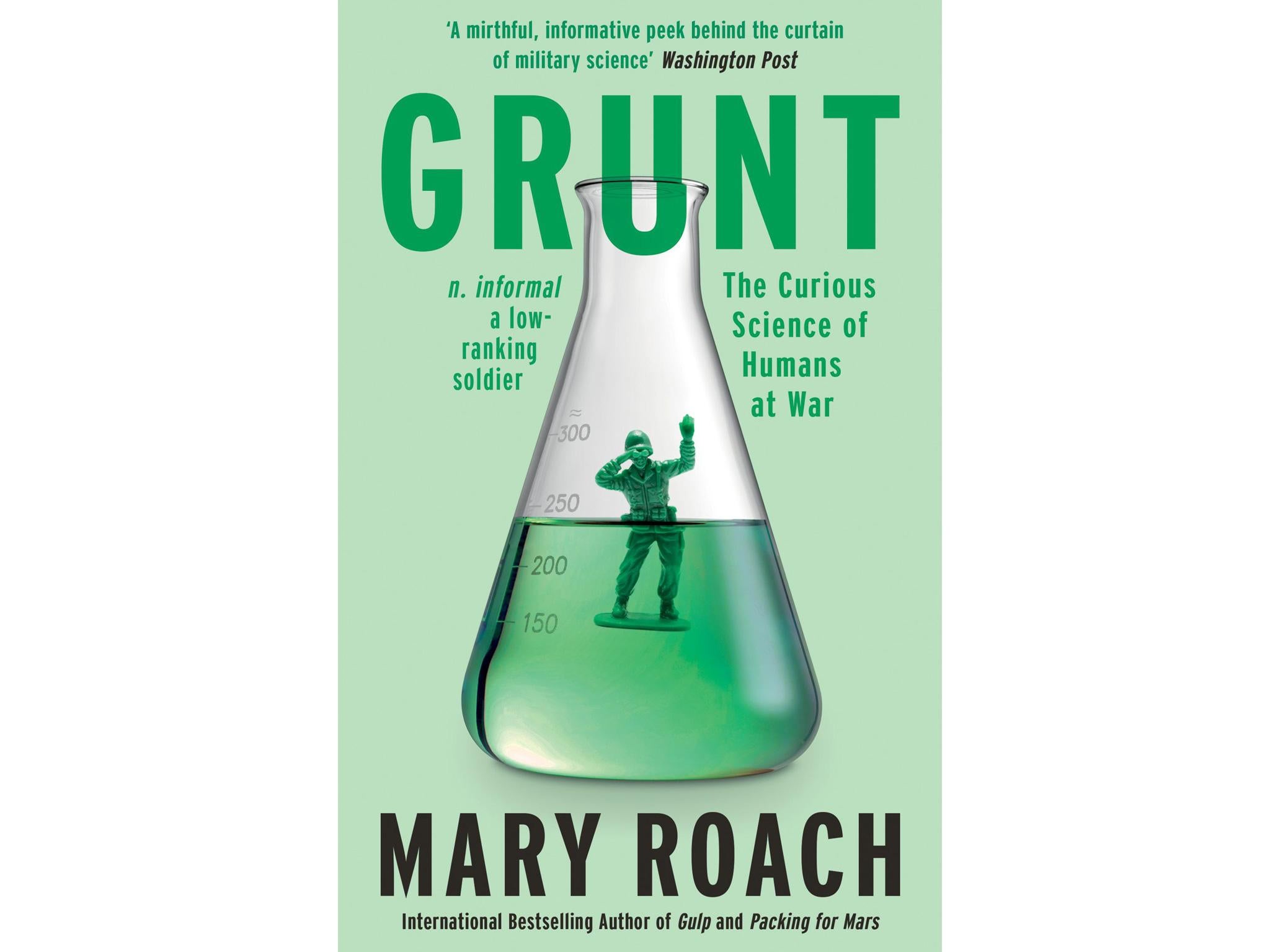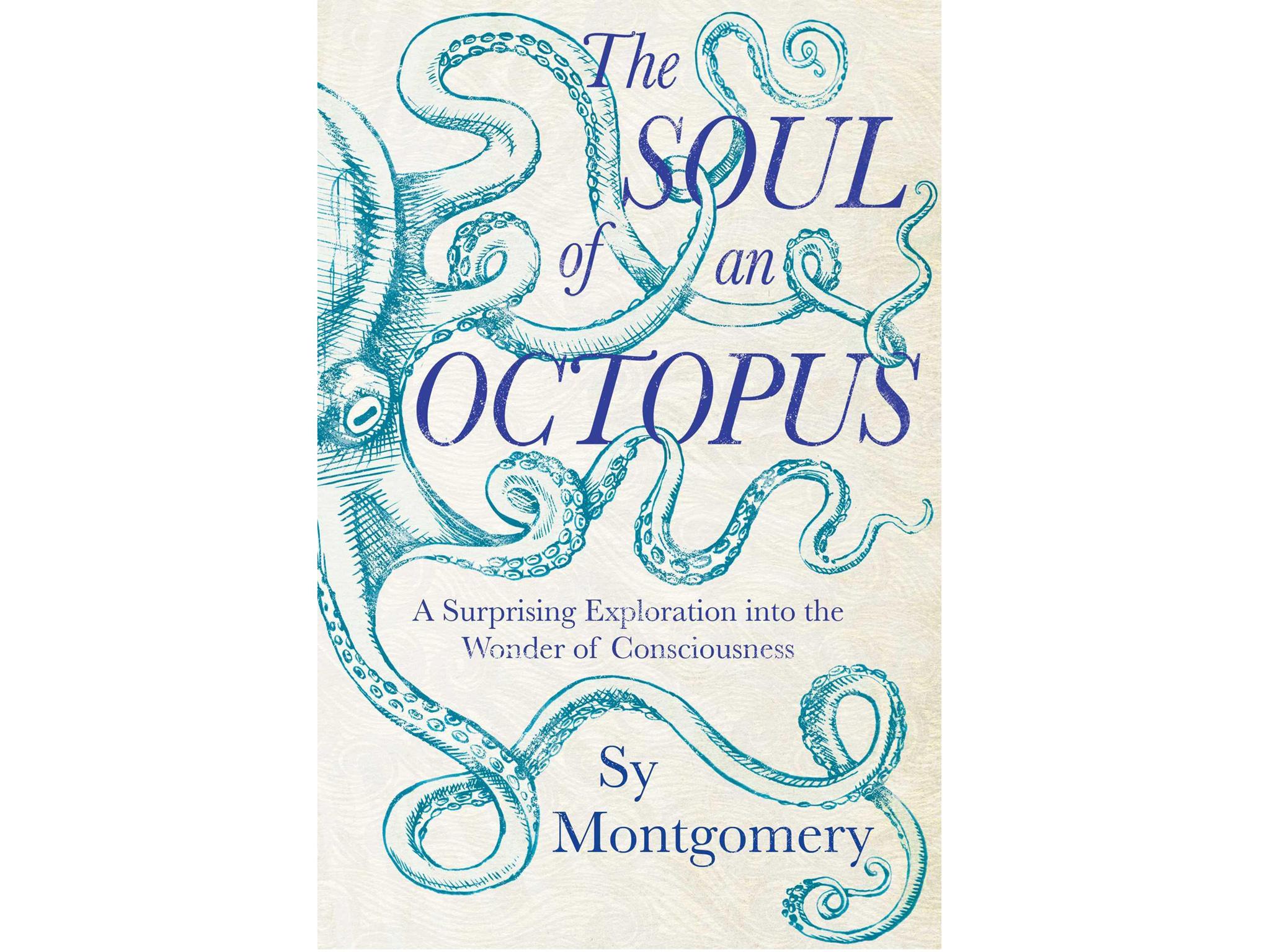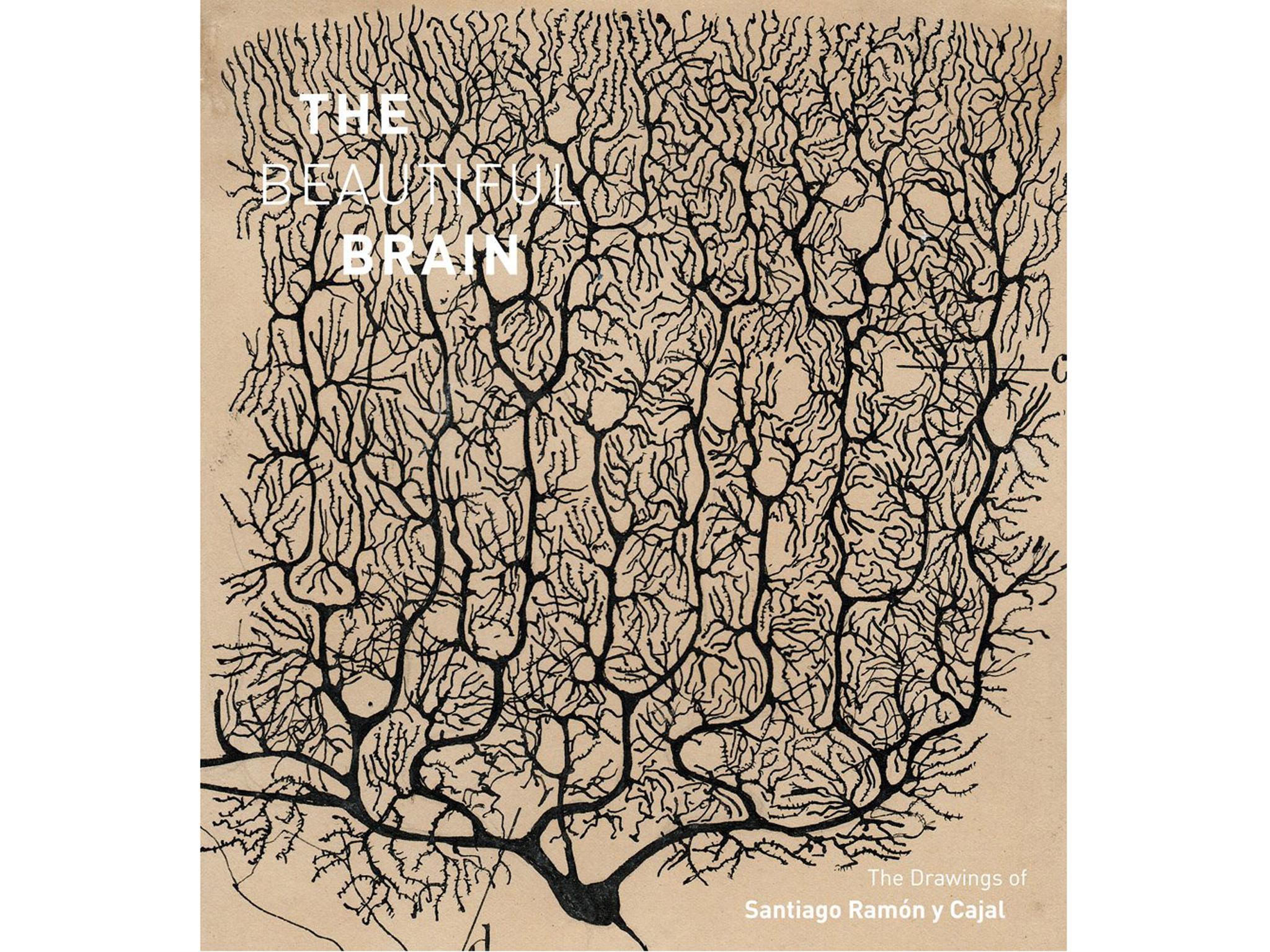The Independent's journalism is supported by our readers. When you purchase through links on our site, we may earn commission. Why trust us?
9 best popular science books
Brains, black holes and betentacled beasts – all that and more in these engagingly accessible reads

Your support helps us to tell the story
From reproductive rights to climate change to Big Tech, The Independent is on the ground when the story is developing. Whether it's investigating the financials of Elon Musk's pro-Trump PAC or producing our latest documentary, 'The A Word', which shines a light on the American women fighting for reproductive rights, we know how important it is to parse out the facts from the messaging.
At such a critical moment in US history, we need reporters on the ground. Your donation allows us to keep sending journalists to speak to both sides of the story.
The Independent is trusted by Americans across the entire political spectrum. And unlike many other quality news outlets, we choose not to lock Americans out of our reporting and analysis with paywalls. We believe quality journalism should be available to everyone, paid for by those who can afford it.
Your support makes all the difference.With the Juno spacecraft arriving at Jupiter, a piece of amber-enclosed dinosaur tail showing up in a Burmese market, a child being born of three parents and, of course, the unprecedented detection of “ripples” in space-time, the past year has been a fruitful one in scientific achievement and discovery.
Any of us without the knowhow might be totally lost if it weren’t for the talented writer-scientists who take the time to pen popular science books about their respective fields. Popular science is a protean genre spanning hundreds of topics, and this article tries to reflect that fact – we have books on neuroscience, books on genetics, books that blend neuroscience with memoir, books that blend genetics with memoir, books on the octopus, books on time and books on black holes. These are the best in popular science from the past year – books that will enlighten, entertain, terrify and make you feel bad about how little you remember from school.
1. Black Hole Blues: And Other Songs From Outer Space by Janna Levin: £17.99, The Bodley Head

In this book, Janna Levin – like many of the authors on this list, a writer trapped in a scientist’s body – tells the story of the Laser Interferometer Gravitational Wave Observatory (or Ligo) and the long journey that led to the detection of Einstein’s hitherto theoretical gravitational waves. Perhaps more than any author on this list, Levin is a master of storytelling: the programme’s origins, its purpose, its eccentric architects and its wider significance for humanity all feature in this book as themes, converging to form a novel-like narrative that keeps the reader hooked in awe page after page. Black Hole Blues is a captivating study of the process of scientific discovery.
2. The Gene: An Intimate History by Siddhartha Mukherjee: £25, The Bodley Head

Siddhartha Mukherjee is a physician, researcher, biologist, geneticist, oncologist, a few more -ists, and, importantly for us, an excellent writer. Six years ago he published a Pulitzer Prize-winning book on cancer – The Emperor of all Maladies – in which he strove to expel the mythology around cancer, to make it less the colossal affliction we imagine it to be and instead show it as something that can and likely will be overcome by scientists. For those who have read his previous book, the style in The Gene will seem familiar: Mukherjee is at once embedded with and estranged from his subject, carefully chronicling the story of genetics while including bits of his own personal history with hereditary illness, the “intimate” history suggested by the subtitle. He places the gene in a triumvirate of scientific ideas that dominated the twentieth century, alongside the atom and the byte. Mukherjee’s immense knowledge of genetics and formidable fluency in prose shows that there are few people more suited to tackling a subject as complicated, delicate and indeed dangerous – the pseudoscience of genetics and race has often led to catastrophe – as that of the gene.
3. A Brief History of Everyone Who Ever Lived by Adam Rutherford: £20, Weidenfeld & Nicolson

One of the most extraordinary things about this book is its sheer breadth. Rutherford, a writer and geneticist who has written previously on the subject, weaves from our genes a fascinating tapestry of human history from its most primitive origins to its sophisticated present, and beyond. True to its title, Rutherford’s overview of genetics is brief: at 300 pages it is considerably shorter than Mukherjee’s, meaning that if you’re after just a quick though comprehensive survey of genetics, this is the book for you. The writing is concise and often funny, and Rutherford never takes himself or his subject too seriously. (In the first chapter he refers to human penises as the “immodest instruments of biological transition”). It is one of those rare books that you’ll finish thinking you haven’t wasted a single second.
4. When Breath Becomes Air by Paul Kalanithi: £8.99, Vintage

Paul Kalanithi – a neurosurgeon by profession and philosopher by temperament – died of lung cancer in 2015 at the age of thirty-seven. At university he studied biology before completing a postgraduate degree in English literature, and only then did he decide that while literature may offer some answers to life’s big questions, it offers little in the way of practical remedies. And so he began his career in medicine. This book was written in the months leading to Kalanithi's death, and he writes with an eloquence that befits his love of the literary. The memoir follows him from his birth through his youth in a desert town (which nourished his scientific curiosity) through medical school, his residency and, finally, through his illness. Kalanithi often ponders the big questions that led him to medicine in the first place: the origin of personality, the nature of neuroscience, his spiritual quandaries and his rediscovery of Christianity all feature. Perhaps for the piercing prose alone, Kalanithi’s book is one of the few must-reads of 2016.
5. The Brain: The Story of You by David Eagleman: £9.99, Canongate Books

Of his previous work – which includes the best-selling Incognito – Eagleman has been praised for making otherwise inaccessible topics (brain surgery and the like) accessible to lowly laymen like us. One of the charms of his latest book on the brain is Eagleman’s casual approach to his subject. Like a quirky tour guide in a gallery he leads us around the cranium explaining the brain’s biological mechanisms, pondering the differences between the “brain” and “mind” and discussing questions about reality and consciousness that make the reader suffer from spells of existential doubt – well, we did, at least. Another of the book’s core attractions is its wealth of mini-facts. As Stephen Fry has commented, memorable facts pervade every chapter of this book, whether about the magnitude of our neural networks (two-year-olds have over one hundred trillion synapses, two times as many as an adult) or the power of conversation in warding off Alzheimer’s. If you want to boost your understanding of the brain, read this book.
6. Timekeepers: How the World Became Obsessed with Time by Simon Garfield: £16.99, Canongate Books

Simon Garfield is a prolific writer whose work has traversed disparate subjects such as cartography, war, memoir, AIDs and, now, time – or more specifically, timekeeping. One of the first things that Garfield stresses to the reader is that he is not attempting a chronicle and examination of time itself à la Hawking, but instead a history of how we came to record and (as the subtitle suggests) grow obsessed with time. The crux of Garfield’s argument is that, perhaps more than any period in our history, we are obsessed with time, and it isn’t a benign obsession: according to Garfield our modern fondness for productivity and disdain for idleness is making us hyperconscious of time’s passage and constantly anxious that we are wasting what little time we have. This is an interesting take on our troubled relationship with timekeeping.
7. Grunt: The Curious Science of Humans at War by Mary Roach: £12.99, Oneworld Publications

Mary Roach’s book about the science of soldiery takes a subject that we think we know a fair bit about – in this case war, a subject about which countless books, movies and video games are released every year – and hones in on one dark zone where our knowledge is probably nil. Her chosen topic is the science of keeping soldiers safe and healthy. Roach is no stranger to gruesome topics: her first book dealt with the science and utility of corpses. In her latest book Roach investigates the various ways that the US military tries to protect the health of its soldiers, moving between topics like penis construction surgery to military apparel to the threats that birds pose to military aircraft (we learn that the US military bombards aircraft propellers with chicken carcasses in order to determine the machine’s sturdiness against avian onslaught).
8. The Soul of an Octopus by Sy Montgomery: £8.99, Simon & Schuster

Sy Montgomery is an American naturalist and author, and her latest book opens with a surprisingly moving encounter between the author and a giant Pacific octopus called Athena. Montgomery, who at this point in her career still thinks the plural of octopus is octopi, dips her arm into Athena’s tank and spends a few minutes letting the octopus wrap her tentacles around her arm until an employee gently removes her. Much of Montgomery’s book strives to rescue the octopus from its unfairly unflattering reputation as a vicious monster from the deep. (The Roman author Pliny wrote: “No animal is more savage in causing the death of man in water.”) Thankfully, despite its reputation the octopus has been receiving a good deal of scientific interest recently for its remarkable powers of cognition, which Montgomery and other scientists now argue amount to consciousness. Whatever the facts, it’s difficult to come away from Montgomery’s book without a newfound appreciation of the octopus.
9. The Beautiful Brain: The Drawings of Santiago Ramón y Cajal by Larry W Swanson: £25, Abrams Books

Born in Madrid in 1852, Santiago Ramón y Cajal was a pioneering Spanish neuroscientist who studied slices of brain under the microscope and drew – this being a time before neuroimaging – whatever he saw. This book collects hundreds of his mesmerising illustrations of neural cells and provides brief explanations of whatever we're looking at (which can be as bizarre as "muscle cells from the leg of a scarab beetle"). The book also includes an excellent biographical essay by Larry W Swanson, a neuroscientist at the University of Southern California, in which we learn much about Ramón y Cajal's work, his character and his insatiable drive to discover the secrets of the brain. More than any book on this list, The Beautiful Brain shows us exactly what it looks like when science and art converge.
The Verdict: Popular science books
In Black Hole Blues, Janna Levin deals with a subject of literally cosmic proportions while managing to maintain the human fears and hopes of the characters who made Ligo and the detection of ripples in space-time possible. This ability to blend the grandest science there is with the minutest details of human interaction is what makes this book the exceptional piece of work it is. Of course Levin is not the only author who expertly captures the macro and microcosmic in one book: Siddhartha Mukherjee and Adam Rutherford prove equally capable at balancing the two, though all of the authors on this list provide full and fascinating portraits of their respective fields. These are all subjects that demand a lifetime of study if they are to be properly understood, and we who don’t have lifetimes to spare should be grateful that there are scientists out there with the will and talent to write the excellent books that they do.
All prices listed are RRP